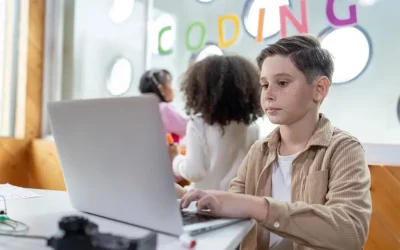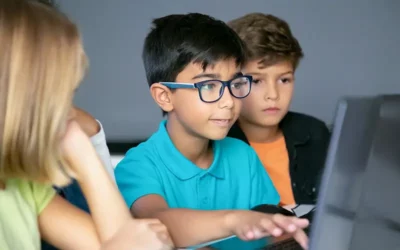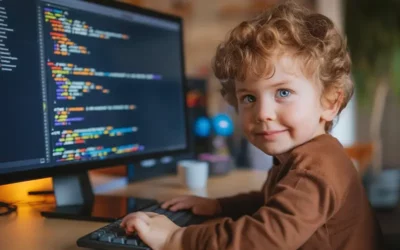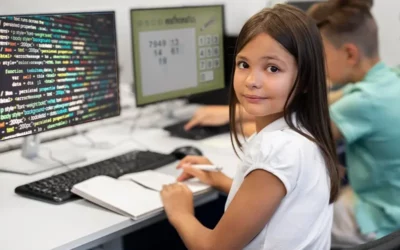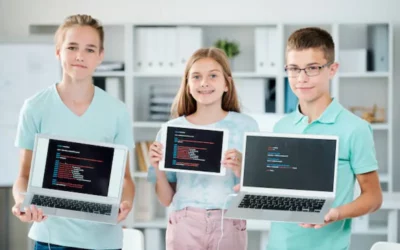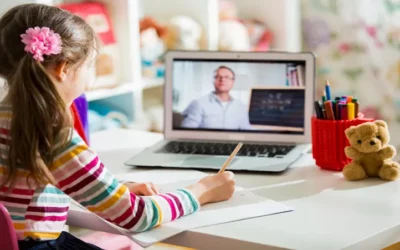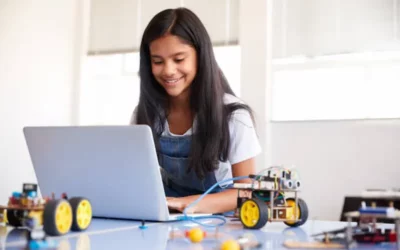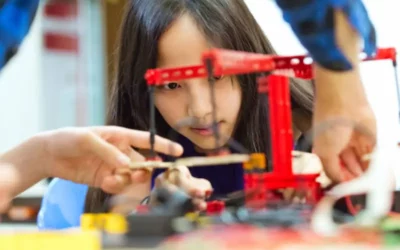Python Coding for Kids: A Beginner’s Guide” is an excellent resource designed to introduce children to the exciting world of programming using the Python language. This beginner’s guide provides a comprehensive and easy-to-follow approach, making it ideal for young learners with little to no coding experience.
Table of contents
Introduction to Python Coding for Kids
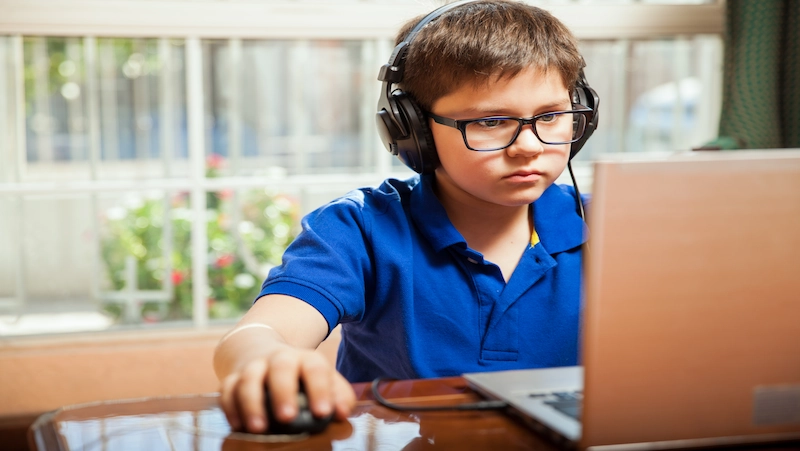
Python coding for kids is an excellent way to introduce young minds to the world of programming and computer science. Python, known for its simplicity and readability, is a versatile programming language that provides a gentle learning curve for beginners. It is widely used in various fields, including web development, data analysis, artificial intelligence, and more.
Python’s user-friendly syntax makes it an ideal choice for kids starting their coding journey. The language uses easily understandable words and phrases, which allows children to grasp programming concepts quickly and effectively. Python’s visual and interactive nature enables kids to see immediate results of their code, fostering their creativity and problem-solving skills.
Introducing kids to Python coding offers numerous benefits. It enhances logical thinking, analytical reasoning, and algorithmic understanding. Kids learn how to break down complex problems into smaller, manageable parts and then create step-by-step solutions using code.
Importance of learning Python and how it can benefit children
Python is a general-purpose programming language that is becoming increasingly popular, especially among children. There are many reasons why learning Python can be beneficial for kids, including:
- It is easy to learn. Python has a simple syntax that is easy for beginners to understand. This makes it a great choice for kids who are just starting to learn how to code.
- It is versatile. Python can be used for a wide variety of projects, from simple games to complex data analysis. This means that kids can use Python to learn about a variety of topics and apply their skills to real-world problems.
- It is open-source. Python is an open-source language, which means that there is a large community of developers who are constantly creating new resources and tools for Python programmers. This makes it easy for kids to find help and support when they are learning Python.
- It is fun. Learning to code can be a lot of fun, and Python is a language that is particularly well-suited for kids. There are many games and activities that can help kids learn Python in a fun and engaging way.
BrightChamps offers Python coding for kids as part of their programming curriculum. With interactive lessons and hands-on projects, young learners can explore the world of coding and develop valuable programming for kids on the BrightChamps platform.
Why Python is Great for Kids?
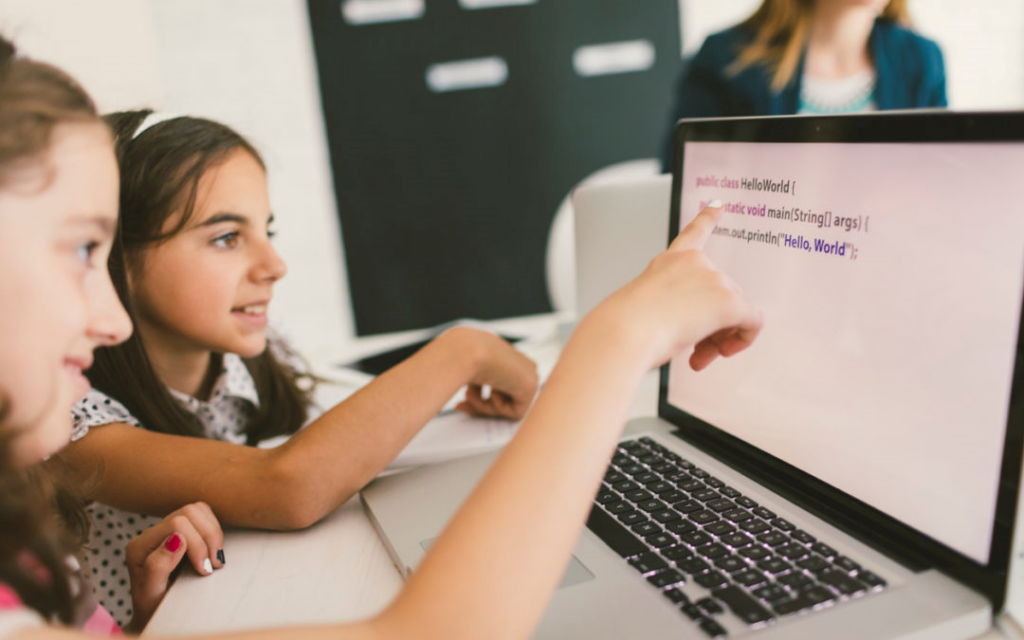
Python is a programming language that has gained immense popularity in recent years, and its suitability for kids is one of its greatest strengths. Python’s simplicity and readability make it an excellent choice for young learners. With its easy-to-understand syntax and minimalistic design, kids can quickly grasp the fundamentals of coding without feeling overwhelmed.
One of the key reasons Python is great for kids is its focus on simplicity. The language emphasizes clean and concise code, which enables children to express their ideas without getting tangled in complex syntax. Python’s intuitive nature allows young programmers to focus on problem-solving and creative thinking, rather than getting caught up in technical details.
Additionally, Python boasts a large and supportive community. There are countless online resources, tutorials, and interactive platforms specifically designed to teach programming to children using Python. This vast ecosystem provides a wealth of learning materials, making it easier for kids to find answers to their questions and seek help when needed.
Python is a popular language for kids to learn for a number of reasons. It is easy to read and write, has a wide range of applications, and is free to use.
Easy to read and write
Python has a simple syntax that is similar to English. This makes it easy for kids to learn and understand. The language also has a large number of libraries and resources available, which can help kids learn at their own pace.
Wide range of applications
Python can be used to create a wide variety of applications, including games, coding websites for kids, and software. This makes it a versatile language that can be used to explore a variety of interests.
Free to use
Python is an open-source language, which means that it is free to use and distribute. This makes it a great option for kids who are on a budget.
Other benefits
In addition to being easy to learn, Python also has a number of other benefits for kids. It can help kids develop critical thinking skills, problem-solving skills, and creativity. It can also help kids prepare for future careers in STEM fields.
If you are looking for a language for your kid to learn, Python is a great option. It is easy to learn, has a wide range of applications, and is free to use.
Here are some additional reasons why Python is a great language for kids to learn:
- It is a general-purpose language, which means that it can be used for a variety of tasks. This makes it a good choice for kids who are interested in learning about different aspects of computer science.
- It is a powerful language, which means that it can be used to create complex applications. This can help kids develop their problem-solving skills and creativity.
- It is a versatile language, which means that it can be used on a variety of platforms. This makes it a good choice for kids who want to learn how to code for different devices.
- It is a popular language, which means that there are many resources available to help kids learn Python. This includes online tutorials, books, and courses.
If you are interested in teaching your kid how to code, Python is a great place to start. It is a fun and rewarding experience that can help kids develop valuable skills for the future.
Benefits of learning Python
Here are some specific examples of how Python is used in different industries:
- Web development: Python is a popular choice for web development because it is easy to learn and use, and it has a wide range of libraries and frameworks that can be used to build web applications.
- Data science: Python is a popular choice for data science because it has a wide range of libraries and tools that can be used to analyze data.
- Machine learning: Python is a popular choice for machine learning because it has a wide range of libraries and tools that can be used to build machine learning models.
- Scientific computing: Python is a popular choice for scientific computing because it has a wide range of libraries and tools that can be used to perform mathematical and scientific calculations.
If you’re interested in learning more about Python, there are a number of resources available online. Here are a few of the best:
- Python Tutorial: This tutorial is a great place to start if you’re new to Python. It covers the basics of Python syntax and programming concepts.
- Python Documentation: The Python documentation is a comprehensive resource for learning about Python. It covers everything from the syntax of the language to the libraries and frameworks that are available.
- Python Stack Exchange: This forum is a great place to ask questions about Python and get help from other Python developers.
I hope this gives you a better understanding of the benefits of learning Python. If you’re interested in learning more, I encourage you to check out the resources I’ve mentioned.
Python Basics for Kids

Python Basics for Kids is a fun and engaging way to introduce young learners to the fundamental concepts of Python programming. Designed with kid-friendly language and examples, this introductory course breaks down complex programming concepts into simple and understandable terms.
The course starts by explaining the concept of variables, which are like containers used to store different types of information. Kids will learn how to assign values to variables and use them to perform various tasks. They will also explore different data types, such as numbers and strings, and understand how to manipulate them.
Next, the course delves into loops, which are repetitive structures in programming. Using relatable examples, kids will learn about for loops and while loops, and how they can be used to automate tasks and save time. They will discover the power of iteration and understand how to make their programs repeat specific actions.
Finally, the course introduces functions, which are like mini-programs that perform specific tasks. Kids will learn how to create their own functions, give them names, and pass information to them. They will grasp the concept of modular programming, where complex problems are divided into smaller, manageable parts.
Python Basics for Kids provides a solid foundation for young learners to explore the exciting world of programming. By presenting concepts in a kid-friendly manner, this course encourages creativity, problem-solving, and critical thinking skills. With Python, kids can bring their ideas to life and start their journey in the world of coding.
Visit python programming for kids.
Projects to Build with Python
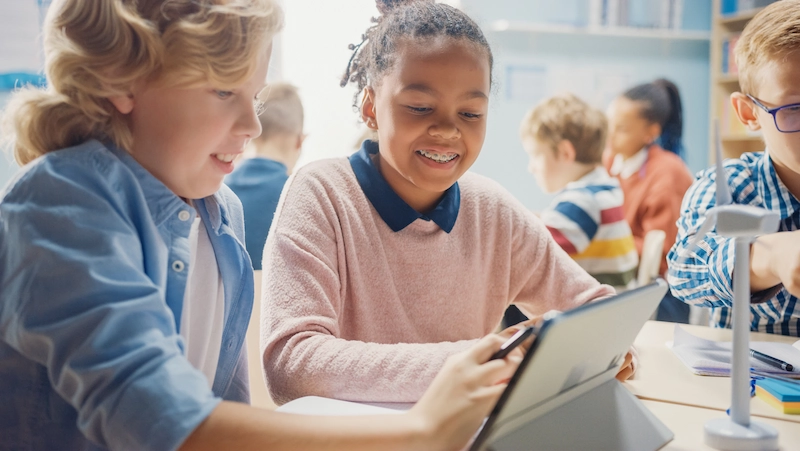
Python is a powerful programming language that is easy to learn and use. It is a great choice for kids who are interested in learning to code, as it offers a wide range of possibilities for projects. Here are a few ideas for fun and engaging Python projects that kids can build:
- Create a simple game. There are many different types of games that can be created with Python. For a simple project, you could try creating a text-based adventure game. This type of game is easy to code and can be a lot of fun to play.
- Build a chatbot. Chatbots are computer programs that can simulate conversation with humans. They are often used in customer service applications, but they can also be used for fun and games. To build a chatbot, you will need to learn about natural language processing and machine learning.
- Create a website. Websites are a great way to share information and ideas with the world. With Python, you can create a website without any prior experience in web development. There are many different frameworks and libraries that can make the process of creating a website with Python much easier.
- Write a program to automate a task. There are many tasks that can be automated with Python. For example, you could write a program to automatically send emails, download files, or even control your home appliances.
These are just a few ideas for fun and engaging Python projects that kids can build. With a little creativity, there are endless possibilities for what can be created with this powerful language.
Resources for Parents and Educators
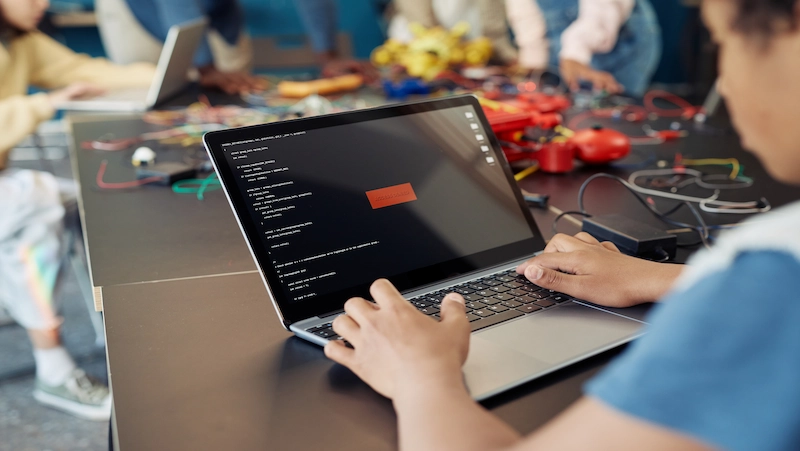
Python is a versatile and powerful programming language that is widely used in various fields, including web development, data analysis, artificial intelligence, and more. As parents and educators, it is important to provide children with the opportunity to learn Python, as it can enhance their problem-solving skills, logical thinking, and creativity. Fortunately, there are numerous resources available to help parents and educators teach kids Python effectively.
Online communities and forums provide a wealth of resources for parents and educators. Websites like Python.org, Stack Overflow, and Reddit have dedicated sections for beginners where individuals can ask questions, seek guidance, and find additional learning materials.
Lastly,coding classes for kids, coding clubs, workshops, and summer camps are excellent opportunities for children to learn Python in a collaborative and interactive environment. Many organizations and educational institutions offer these programs, allowing kids to learn from experienced instructors and collaborate with peers who share similar interests.
Books for kids to start their coding journey
Here are some books that can help parents and educators teach coding to kids:
- How to Code a Sandcastle by Mike Adriano: This book is a great introduction to coding for young children. It uses a fun story about a robot and a sandcastle to teach basic coding concepts.
- My First Coding Books by Bryson Payne: This book is a collection of 10 short books that teach coding concepts to young children. Each book focuses on a different coding concept, such as loops, variables, and conditionals.
- The Everything Kids’ Scratch Coding Book by Kimberly Tripp: This book is a comprehensive guide to teaching kids how to code using Scratch. Scratch is a free, visual programming language that is perfect for kids.
- Coding for Kids: A Playful Introduction to Programming by Jason Briggs: This book is a fun and engaging introduction to programming for kids. It uses games and puzzles to teach kids about basic programming concepts
- Teach Your Kids to Code by Bryson Payne: This book is a guide for parents and educators who want to teach their kids how to code. It covers a variety of coding topics, including Scratch, Python, and HTML for kids.
These are just a few of the many great books that are available to help parents and educators teach coding to kids. With so many options available, there is sure to be a book that is perfect for every child.
Websites for kids to start their coding journey
There are a number of websites that can help parents and educators teach coding to kids. Some of the most popular options include:
- CodeChamps by BrightChamps is a great learning platform that ignites young minds with the power of coding. It is a creative wonderland where kids dive into the captivating world of programming, learning to unravel complex algorithms and craft their own digital masterpieces.
- Scratch coding for kids is a free, online platform that allows kids to create interactive stories, games, and animations using a simple drag-and-drop interface.
- Code.org is a nonprofit organization that offers a variety of free coding resources for kids, including interactive games, tutorials, and lesson plans.
- Khan Academy offers a free, self-paced coding course for kids ages 9-13. The course covers the basics of coding, including variables, loops, and functions.
- Tynker is a subscription-based coding platform that offers a variety of interactive games and activities for kids of all ages.
- Udacity offers a variety of online coding courses for kids, including courses on Python, Java, and C++.
These are just a few of the many websites that can help parents and educators teach coding to kids. When choosing a website, it is important to consider the age and interests of the child, as well as the level of support that is needed. Additionally, enrolling in a coding class for kids online can provide structured learning and personalized guidance.
Conclusion
In conclusion, Python free coding for kids is a great way to introduce them to the world of programming. Python is a powerful and versatile language that is easy to learn, making it a perfect choice for beginners. There are many resources available to help kids learn Python, including books, websites, and online courses. With a little effort, kids can learn the basics of Python and start creating their own programs.
Learning to code can be a lot of fun, and it can also be very rewarding. Coding can help kids develop problem-solving skills, critical thinking skills, and creativity. It can also help them learn how to work independently and as part of a team. In today’s world, coding is a valuable skill that can open up many doors for kids. If you are considering teaching your child to code, I highly recommend Python. It is a great way to get kids started on their journey into the world of programming.
Check out programming classes for kids.
Frequently Asked Questions
Python is a general-purpose programming language that is easy to learn and use. It is a great language for kids to learn because it is versatile and can be used to create a variety of projects. Learning Python can help kids develop problem-solving skills, logical thinking, and creativity.
Kids can start learning Python at any age, but it is generally recommended that they start at around 10 years old. There are no formal prerequisites for learning Python, but kids should have a basic understanding of math and logic.
The basic concepts of Python that kids should learn first include variables, data types, operators, control flow, and functions.
There are a number of ways that parents or educators can help kids get started with learning Python coding. One way is to find a good online or in-person course. There are also a number of books and resources available that can help kids learn Python.
Some of the best online resources or tools available to teach Python coding for kids include:
Codecademy
Udacity
FreeCodeCamp
Python for Beginners
Scratch
There are a number of ways that kids can practice their Python coding skills once they’ve learned the basics. One way is to find a coding challenge or project to work on. There are also a number of online resources that offer practice problems and exercises.
Some of the most common challenges that kids face when learning Python coding include:
Troubleshooting errors
Staying motivated
Finding time to practice
Kids can overcome these challenges by:
Learning how to troubleshoot errors
Setting realistic goals
Finding a mentor or coding buddy
Yes, learning Python coding can help kids with other subjects or skills, such as math or critical thinking. Python can help kids develop problem-solving skills, logical thinking, and creativity. It can also help kids learn about algorithms and data structures.


 We are an army of educators and passionate learners from BrightChamps family, committed to providing free learning resources to kids, parents & students.
We are an army of educators and passionate learners from BrightChamps family, committed to providing free learning resources to kids, parents & students.








